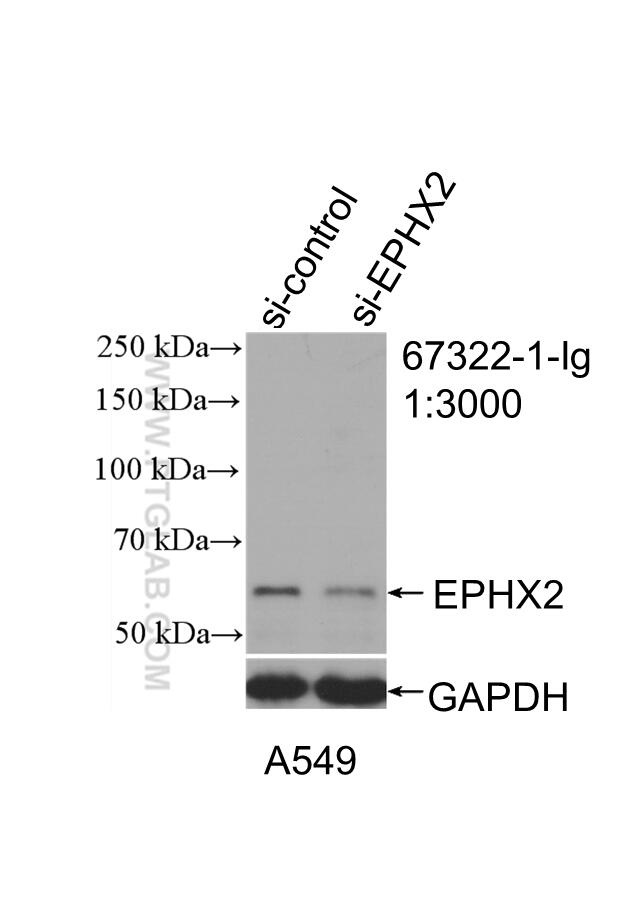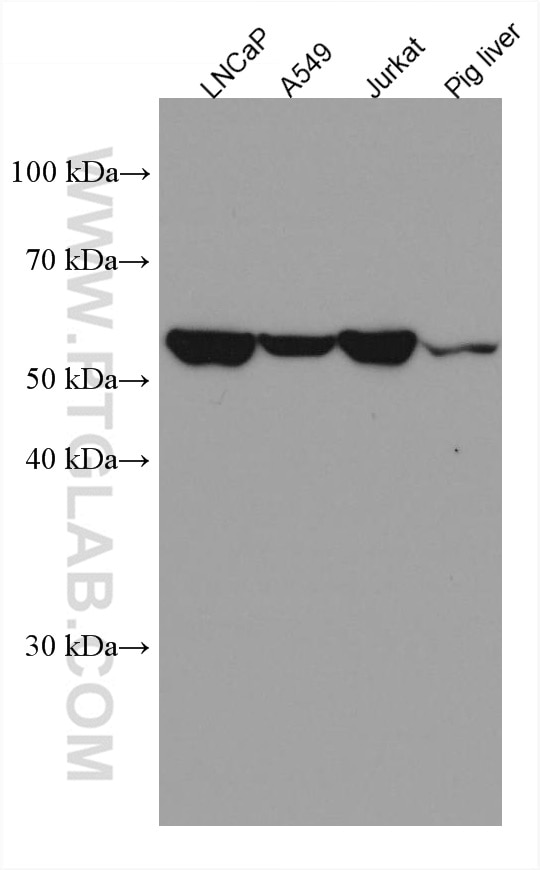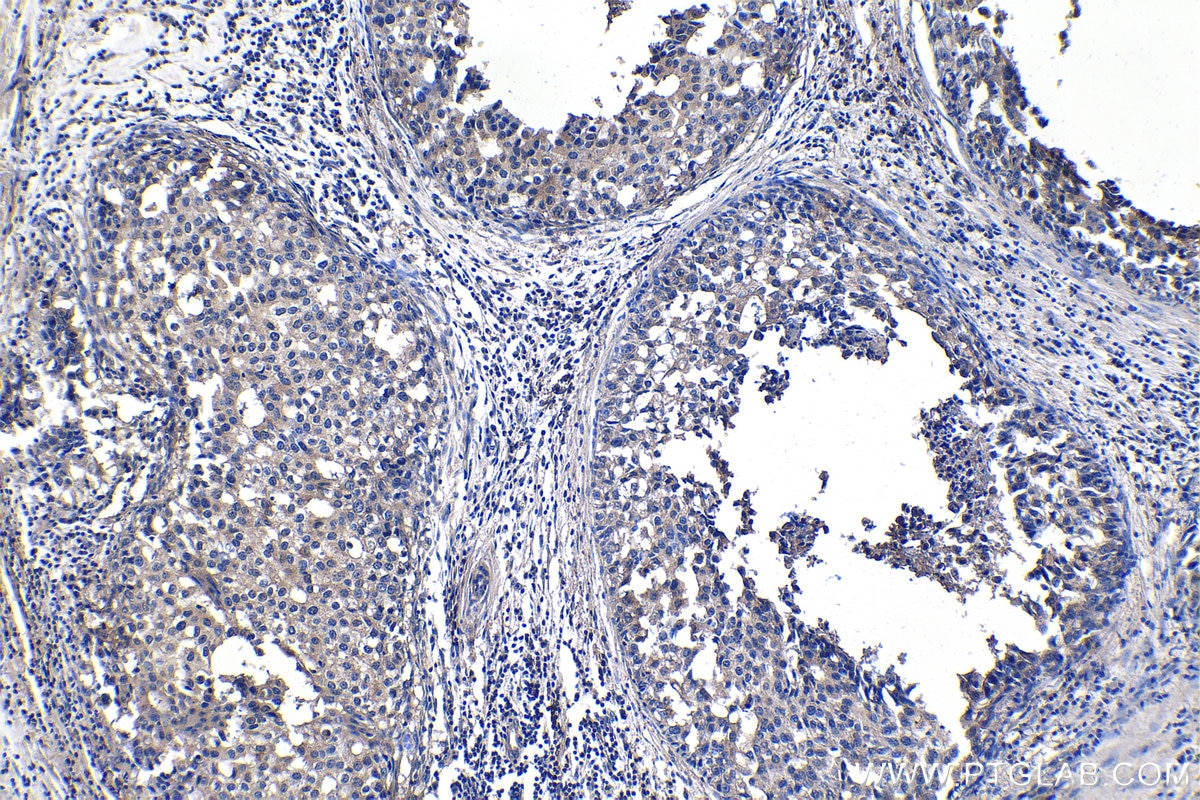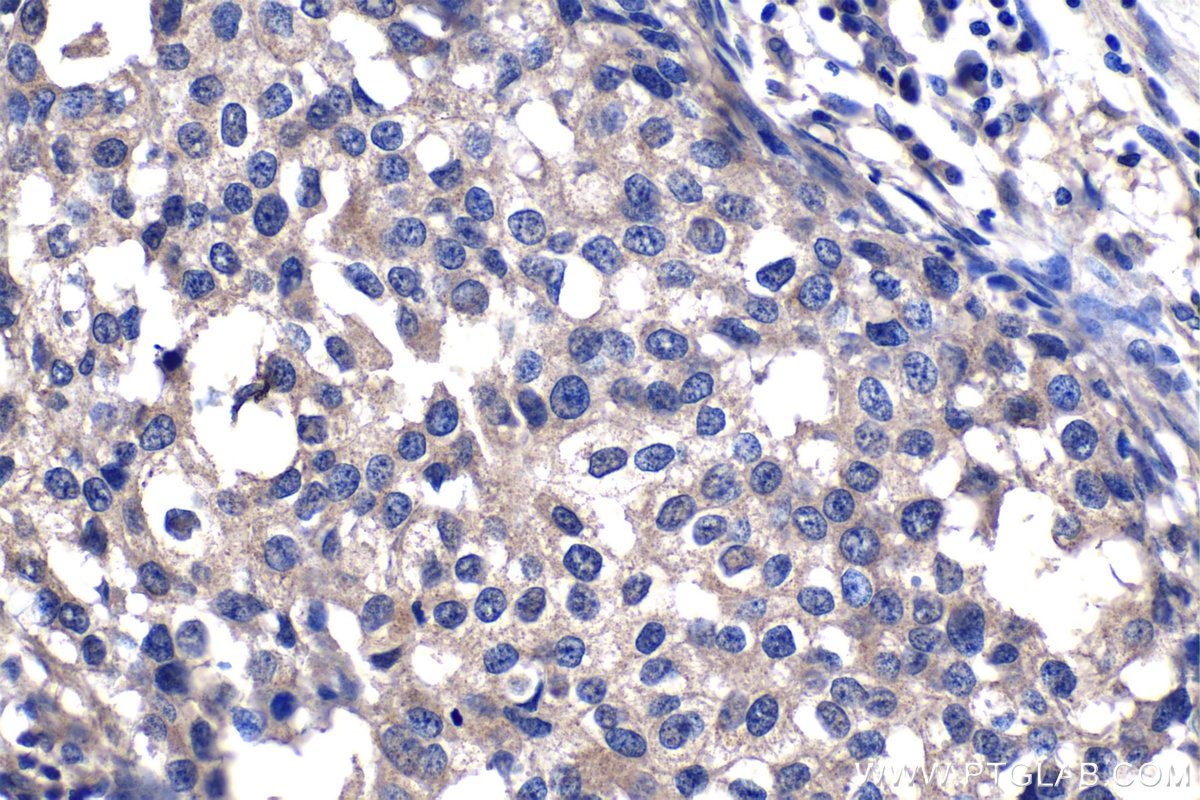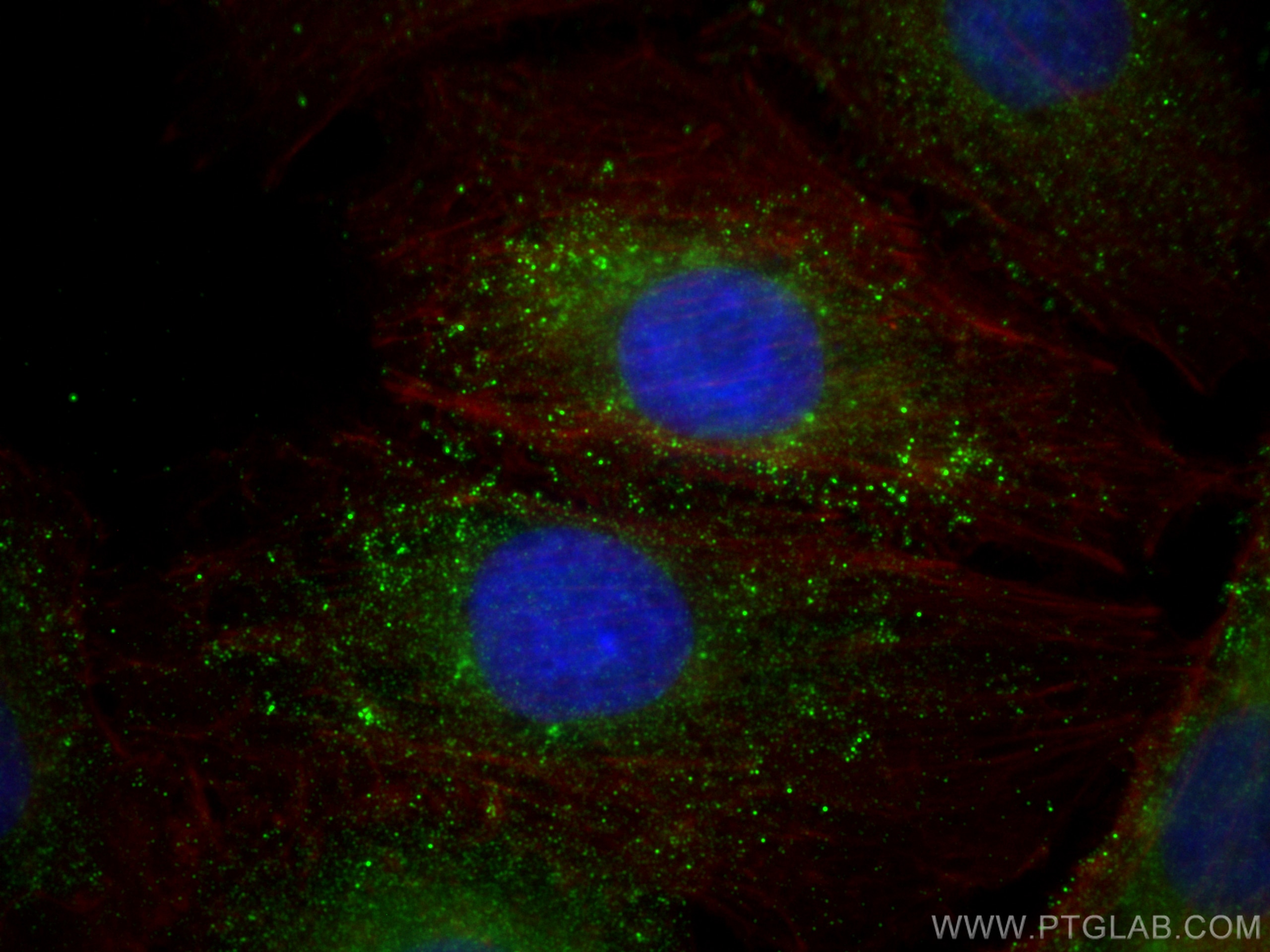- Featured Product
- KD/KO Validated
EPHX2 Monoklonaler Antikörper
EPHX2 Monoklonal Antikörper für WB, IHC, IF/ICC, ELISA
Wirt / Isotyp
Maus / IgG2b
Getestete Reaktivität
Hausschwein, human
Anwendung
WB, IHC, IF/ICC, ELISA
Konjugation
Unkonjugiert
CloneNo.
4H6C8
Kat-Nr. : 67322-1-Ig
Synonyme
Geprüfte Anwendungen
| Erfolgreiche Detektion in WB | LNCaP-Zellen, A549-Zellen, Jurkat-Zellen, Hausschwein-Lebergewebe |
| Erfolgreiche Detektion in IHC | humanes Mammakarzinomgewebe Hinweis: Antigendemaskierung mit TE-Puffer pH 9,0 empfohlen. (*) Wahlweise kann die Antigendemaskierung auch mit Citratpuffer pH 6,0 erfolgen. |
| Erfolgreiche Detektion in IF/ICC | A549-Zellen |
Empfohlene Verdünnung
| Anwendung | Verdünnung |
|---|---|
| Western Blot (WB) | WB : 1:2000-1:10000 |
| Immunhistochemie (IHC) | IHC : 1:2000-1:8000 |
| Immunfluoreszenz (IF)/ICC | IF/ICC : 1:200-1:800 |
| It is recommended that this reagent should be titrated in each testing system to obtain optimal results. | |
| Sample-dependent, check data in validation data gallery | |
Produktinformation
67322-1-Ig bindet in WB, IHC, IF/ICC, ELISA EPHX2 und zeigt Reaktivität mit Hausschwein, human
| Getestete Reaktivität | Hausschwein, human |
| Wirt / Isotyp | Maus / IgG2b |
| Klonalität | Monoklonal |
| Typ | Antikörper |
| Immunogen | EPHX2 fusion protein Ag4870 |
| Vollständiger Name | epoxide hydrolase 2, cytoplasmic |
| Berechnetes Molekulargewicht | 63 kDa |
| Beobachtetes Molekulargewicht | 56-63 kDa |
| GenBank-Zugangsnummer | BC013874 |
| Gene symbol | EPHX2 |
| Gene ID (NCBI) | 2053 |
| Konjugation | Unkonjugiert |
| Form | Liquid |
| Reinigungsmethode | Protein-A-Reinigung |
| Lagerungspuffer | PBS with 0.02% sodium azide and 50% glycerol |
| Lagerungsbedingungen | Bei -20°C lagern. Nach dem Versand ein Jahr lang stabil Aliquotieren ist bei -20oC Lagerung nicht notwendig. 20ul Größen enthalten 0,1% BSA. |
Hintergrundinformationen
EPHX2(Epoxide hydrolase 2) acts on epoxides (alkene oxides, oxiranes) and arene oxides and plays a role in xenobiotic metabolism by degrading potentially toxic epoxides. A number of single nucleotide polymorphisms (SNPs) in human EPHX2 have been linked to cardiovascular disease risk, including increased risk of coronary heart disease, hyperlipoproteinemia, and type-2 diabetes (PMID: 14732757, 16595607, 14673705, 15845398, 17460077). It was observed in many tissues with the band of 63 kDa in the western blot. It has also been reported that the N-terminal domain might promote dimerization of EPHX2 (PMID:21553642).
Protokolle
| PRODUKTSPEZIFISCHE PROTOKOLLE | |
|---|---|
| WB protocol for EPHX2 antibody 67322-1-Ig | Protokoll herunterladen |
| IHC protocol for EPHX2 antibody 67322-1-Ig | Protokoll herunterladenl |
| IF protocol for EPHX2 antibody 67322-1-Ig | Protokoll herunterladen |
| STANDARD-PROTOKOLLE | |
|---|---|
| Klicken Sie hier, um unsere Standardprotokolle anzuzeigen |
